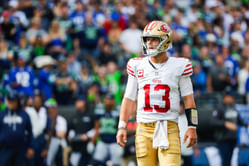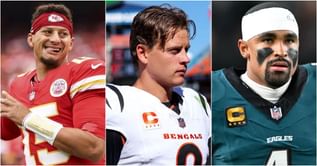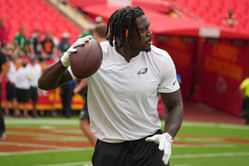
The National Football League (NFL) a professional American football league consisting of 32 teams divided into two conferences. With a rich and long standing history that dates back to the 1920s, the NFL has grown into a significant industry with annual income of billions of dollars.
Like all sports, the NFL has a certain set of rules that govern gameplay and ensure fairplay and safety. Rules are formulated by a committee and enforced by officials and at times, the league, when games are being played.
Rules in sports exist to make the sport fun, exciting, tough, competitive and safe to play and experience. Very often, these rules see changes or modifications in order to deal with issues that may arise or have risen in the past and to keep the game as fair and competitive as possible.
Importance of Rule Changes
Since football's inception, major changes have taken place in the sport. To keep the NFL's games competitive, thrilling, and safe for all participants, rule adjustments are required. NFL rule revisions are required for a number of reasons.
Player Safety
The NFL has prioritized player safety in recent years, and various rule adjustments have been adopted to shield players from harm. The "helmet-to-helmet" regulation, for instance, was put into place to stop athletes from using their helmets as tools to tackle opponents.
Competitive Balance
By prohibiting one team from having an unfair edge over another, rule modifications can help preserve a level playing field amongst all teams. For instance, the NFL implemented a "salary cap" to restrict how much money teams could spend on player pay. This prevents one team from buying all the top players in the league to form what is known as a “superteam.”
Technological Advancements
As technology develops, new tools and equipment become accessible to boost players' abilities. To address how new technology affects the game, rule adjustments may be required. For instance, the NFL implemented instant replay so that officials could examine contentious calls.
Fan Safety and Engagement
Rule changes can keep the NFL exciting and interesting for spectators because it is a huge entertainment industry with a high viewership. For instance, the addition of the two-point conversion instead of a one-point field goal attempt has increased the excitement of the game because teams can now attempt to score two more points after scoring a touchdown.
Recent Rule Changes in the NFL
The NFL typically makes rule changes each year during the offseason, which takes place after the Super Bowl. There are rule changes that are passed almost every year. The degree of their impact varies based on the rule. While some may seem insignificant, some rules may change the game.
Here are some of the more recent rule changes that have taken place for the upcoming NFL season in 2024.
Changes in Gameplay Rules
Rule Change 1: The biggest rule change for the 2024 NFL season comes in the form of the Kickoff rule which has been a dying play in the NFL with the number of touchbacks taking place year after year. Now, for the 2024 season, the NFL is going the XFL way by implementing a 'setup zone' and a 'landing zone' which is being done to reduce injuries and increase kickoff returns.
Basically, the kick-off will still happen from the 35-yard line. There can be one or two returners in the landing zone and if the ball is caught or lands inside the 20 line then the receivers must return the kick and cannot fair catch. As for the other players on the kicking team, they will all line up on the receiving team's 40-yard line while the receiving team players will line up on their 35-yard line.
If the kick does not reach the landing zone then the receiving team starts their drive from the 40-yard line and if the kick goes out of the end zone, then the ball is spotted at the 30-yard line.
Rule Change 2: The second important rule change that has taken place this year is the banning of the hip-drop tackle which is also an attempt to reduce injuries. The penalty for a hip-drop tackle will be 15 yards.
Rule Change 3: The trade deadline has been pushed back by one week and will now be extended to week 9 instead of week 8 as it will be the halfway point of a 18-week regular season.
Rule Change 4: Teams will now get a chance at an extra challenge from 2 to 3 times provided at least one of their initial two challenges was correct.
Other Rules
Rule Change 1: There will be no restrictions for teams on players returning from injured reserve in the postseason.
Rule Change 2: In a possession change play if both teams commit fouls, any major fouls committed before the change of possession such as unnecessary roughness will be enforced.
Rule Change 3: The replay assistant will be able to jump in for incorrect calls on intentional grounding or roughing the passer
Rule Change 4: The replay review will be allowed "when there is clear and obvious visual evidence that the game clock expired before any snap.".
Rule Change 5: Emergency quarterbacks can be elevated from both the 53-man roster and the practice squad in case the starter and backups are not available due to injury or ejection. In 2023, emergency quarterbacks could only be elevated from the 53-man roster.
Impact of Rule Changes:
The NFL has had numerous rule revisions over the years. For instance, the forward pass, which was introduced in 1906, completely changed the game and inspired its development. Similar to instant replay, which was introduced in 1986, it has helped officials analyze plays and make more precise calls, increasing fairness and lowering the possibility of mistakes.
The NFL has recently changed several rules, such as the targeting rule and the kickoff rule modifications, in an effort to increase player safety. The number of concussions and other severe injuries has decreased as a result of these modifications, which have had a substantial impact on the game.
Other rule changes have been made with the goal of improving the fan experience. For instance, the celebration rules have been relaxed, allowing players to express themselves more freely on the pitch. Fans can now better grasp the game and appreciate the ability and agility of the players thanks to the greater usage of instant replay.
Furthermore, in the following seasons, the league may continue to enforce regulations designed to lower the risk of concussions and other catastrophic injuries. The NFL could look into new approaches to track player well-being and health in order to spot any potential health dangers before they develop into more significant problems. Changes made to the use of instant replay can be further updated to make the process more efficient and accurate and reduce the number of missed or wrong calls.









